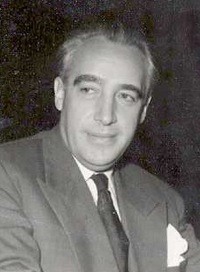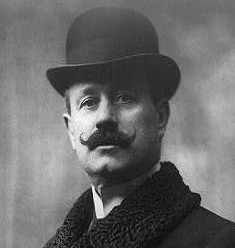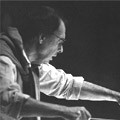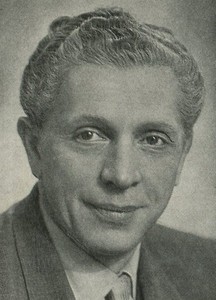
Paul Kletzki |
Paul Kletzki

A traveling conductor, an eternal wanderer, who has been moving from country to country, from city to city for many decades, drawn both by the vicissitudes of fate and the routes of touring contracts – such is Paul Klecki. And in his art, the features inherent in different national schools and styles, features that he learned over the long years of his conductor’s activity, were combined. Therefore, it is difficult for listeners to classify the artist to any particular school, direction in the art of conducting. But this does not prevent them from appreciating him as a deep and extremely pure, bright musician.
Kletsky was born and raised in Lviv, where he began to study music. Very early, he entered the Warsaw Conservatory, studied composition and conducting there, and among his teachers was the wonderful conductor E. Mlynarsky, from whom the young musician inherited a refined and simple technique, the freedom to master the orchestra “without pressure”, and the breadth of creative interests. After that, Kletski worked as a violinist in the Lviv City Orchestra, and when he was twenty years old, he went to Berlin to continue his education. In those years, he intensively and not without success studied composition, improved himself at the Berlin Higher School of Music with E. Koch. As a conductor, he performed mainly with the performance of his own compositions. At one of the concerts, he attracted the attention of V. Furtwangler, who became his mentor and on whose advice he devoted himself mainly to conducting. “All the knowledge regarding the performance of music that I have, I received from Furtwängler,” the artist recalls.
After Hitler came to power, the young conductor had to leave Germany. Where has he been since then? First in Milan, where he was invited as a professor at the conservatory, then in Venice; from there in 1936 he went to Baku, where he spent the summer symphony season; after that, for a year he was the chief conductor of the Kharkov Philharmonic, and in 1938 he moved to Switzerland, to his wife’s homeland.
During the war years, the scope of the artist’s activities, of course, was limited to this small country. But as soon as the gun volleys died down, he began to travel again. The reputation of Kletska by that time was already quite high. This is evidenced by the fact that he was the only foreign conductor invited, on Toscanini’s initiative, to hold a series of concerts during the grand opening of the revived La Scala theater.
In subsequent years, Kletska’s performing activity unfolded in its entirety, covering more and more new countries and continents. At various times he led orchestras in Liverpool, Dallas, Bern, toured everywhere. Kletsky has established himself as an artist of wide scope, attracting with the depth and cordiality of his art. His interpretation of the great symphonic paintings of Beethoven, Schubert, Brahms, Tchaikovsky and especially Mahler is highly valued all over the world, one of the best contemporary performers and ardent propagandists of whose music he has long been.
In 1966, Kletski again, after a long break, visited the USSR, performed in Moscow. The conductor’s success grew from concert to concert. In a variety of programs that included works by Mahler, Mussorgsky, Brahms, Debussy, Mozart, Kletski appeared before us. “The high ethical purpose of music, a conversation with people about the “eternal truth of the beautiful”, seen and heard by a passionately believing in it, extremely sincere artist – this is, in fact, what fills everything that he does at the conductor’s stand, – wrote G. Yudin. – The hot, youthful temperament of the conductor keeps the “temperature” of the performance all the time at the highest level. Every eighth and sixteenth is infinitely dear to him, therefore they are pronounced lovingly and expressively. Everything is juicy, full-blooded, plays with Rubens’ colors, but, of course, without any frills, without forcing the sound. Occasionally you disagree with him… But what a small thing compared to the general tone and captivating sincerity, “sociability of performance”…
In 1967, the aged Ernest Ansermet announced that he was leaving the orchestra of Romanesque Switzerland, created by him half a century ago and nurtured. He handed over his favorite brainchild to Paul Klecki, who, thus, finally became the head of one of the best orchestras in Europe. Will this put an end to his countless wanderings? The answer will come in the coming years…
L. Grigoriev, J. Platek, 1969





